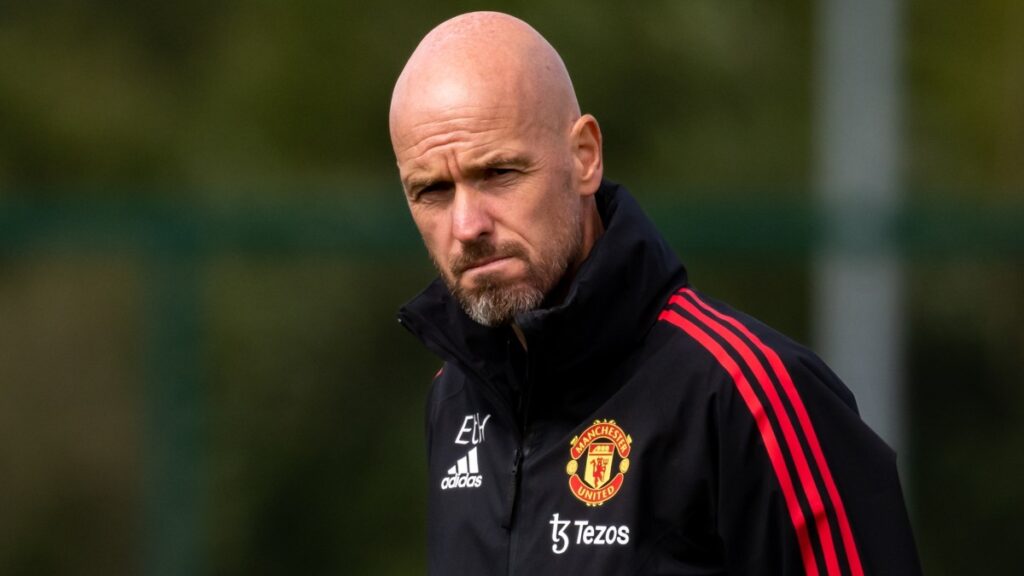Erik ten Hag’s arrival at Manchester United was marked by promises of inspiring, fluid transition football. And indeed, it seems he’s delivered on that promise. Whether it was witnessing Crystal Palace’s rapid attacks on Monday night, Sheffield United’s forward surges at Old Trafford a few weeks ago, or even Coventry City’s display in the recent FA Cup semi-final, United fans have been treated to exhilarating counterattacking football on a regular basis. However, despite Ten Hag’s efforts, much of the excitement lately seems to be generated by the opposition.
It’s become somewhat of a tradition: every even-numbered year, the question of whether the Manchester United manager should be sacked arises. David Moyes (2014), Louis van Gaal (2016), José Mourinho (2018), Ole Gunnar Solskjær (2021 due to the pandemic delay), and Ralf Rangnick (2022) can now likely be joined by Ten Hag (2024), another highly respected manager who may not have had what it takes to handle the pressures of managing such a massive club. It’s a familiar, unfortunate pattern. How do they keep finding themselves in this situation?
Ten Hag often speaks about “following the script,” and if he’s read this assessment, he probably senses that the moment of reckoning is near. There’s a certain poetic symmetry to it all: a reign marked by two devastating 4-0 defeats in London, midfield struggles with the likes of 30-year-old and 32-year-old Christian Eriksen, and a coach left searching for answers from start to finish.
After the Brentford game in 2022, Ten Hag lamented “individual mistakes” and discarded plans. Following the Palace defeat in 2024, he again cited “big mistakes” and a failure to stick to the plan. Sometimes, the narrative just takes over.
Barring a miraculous victory in the FA Cup final against Manchester City or an unexpected reprieve from the club’s new leadership, Ten Hag will likely depart at the end of the season. And, frankly, it’s understandable. You can’t consistently perform this poorly and expect to keep your job. The team has experienced the most defeats in a season since 1977-78, conceded the most goals since 1976-77, and struggled to prevent opponents from taking shots.
But perhaps more damning than the statistics are the visual cues: the palpable panic and disarray when the opposition attacks, the sight of Jonny Evans lagging behind the defensive line, and the desperate attempts to stop opponents that often result in missed tackles and confusion.
Everyone knows why United keep conceding goals. The high press from the front three leaves the defense vulnerable, creating vast expanses in midfield that even top-class midfielders would struggle to cover. If an amateur analyst can identify these issues, surely a coach with Ten Hag’s experience can too. So why hasn’t he fixed it?
Part of the problem lies in personnel. Injuries have deprived Ten Hag of key defenders like Lisandro Martínez and Luke Shaw for significant portions of the season, forcing him to rely on less suitable replacements. Additionally, Ten Hag’s commitment to a specific style of play, focused on lightning counterattacks and attacking verve, has sometimes seemed at odds with the personnel available.
Despite the challenges, there have been positives. Young talents like Alejandro Garnacho and Kobbie Mainoo have flourished, while established players like Bruno Fernandes continue to perform. However, these bright spots haven’t been enough to overshadow the team’s overall struggles.
For a club like Manchester United, where success is measured not just in trophies but in entertainment value and global appeal, Ten Hag’s tenure has been a mixed bag. While the football has often been thrilling and dramatic, the lack of consistency and defensive stability has raised serious questions about his suitability for the job.
As the season draws to a close, speculation mounts about Ten Hag’s future. Whether he stays or goes, one thing is certain: at Manchester United, the cycle of transition and upheaval never truly ends.








More Stories
Amorim insists Fernandes not leaving Manchester United amid Madrid reports
How debt burden pushed Nigerian boxer Segun Olanrewaju to a fight that took his life
Nigeria Taekwondo Federation boss, Abdullahi Saidu dies at 53